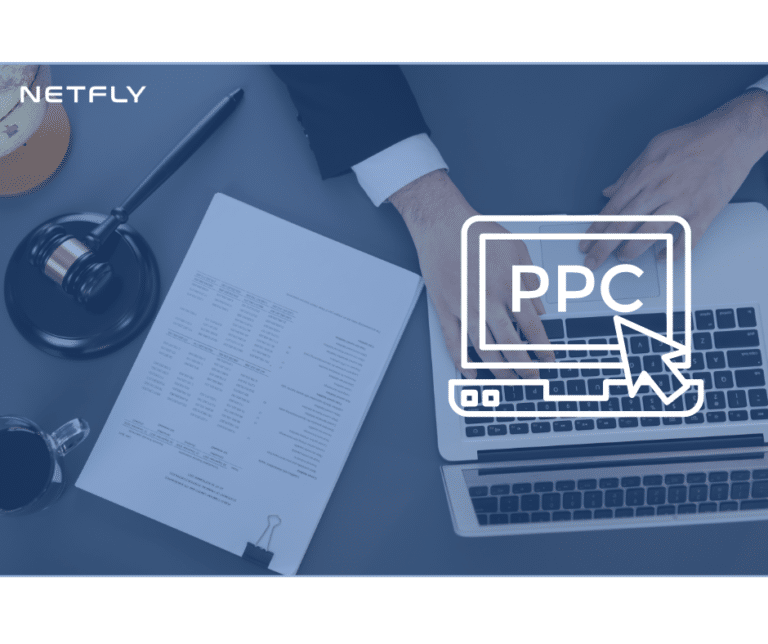Did you know that 96% of people seeking legal advice use a search engine? If you’re looking to optimize attorney SEO on a WordPress CMS, you’ve got to start with thorough keyword research. Tools like SEMrush or Ahrefs can help you uncover those high-conversion long-tail keywords that potential clients are using. But it doesn’t stop there—on-page optimization and essential technical SEO are vital too. We’ll explore how local SEO strategies, content creation, and performance monitoring can further enhance your online presence. Curious about the next steps to make your law practice more discoverable online?
Key Takeaways
- Optimize meta tags, headers, and images with relevant keywords for better on-page SEO.
- Use plugins like W3 Total Cache to improve site speed and enhance user experience.
- Implement Schema Markup with plugins like Schema Pro to increase visibility.
- Claim and optimize your Google My Business listing for better local search results.
- Regularly update your blog with high-quality, keyword-rich content for better rankings.
Keyword Research
For effective attorney SEO on WordPress, performing thorough keyword research is essential to identifying the terms potential clients are searching for. Start by conducting a competitor analysis to see which keywords other successful law firms in your area are ranking for. Tools like SEMrush or Ahrefs can help you uncover these keywords, giving you a benchmark and saving you from the trial and error process.
Focusing on long tail keywords is another critical step. These are longer, more specific phrases that potential clients might use, such as “best divorce attorney in New York” instead of just “divorce attorney.” Long tail keywords often have lower search volume but higher conversion rates because they target users who are closer to making a decision.
Using Google’s Keyword Planner or Ubersuggest can help you identify these valuable long tail keywords. Make sure to also consider search volume, competition, and relevance to your services. By targeting the right mix of competitive and long tail keywords, you can better align your content with the search intent of potential clients, making your SEO strategy more effective and user-friendly.
On-Page Optimization
On-page optimization is vital for boosting your attorney website’s search engine rankings and attracting potential clients. Start by focusing on your meta tags. Make sure your title tags and meta descriptions are compelling and include relevant keywords. A well-crafted meta description can increase your click-through rate by up to 5.8%.
Next, pay attention to your header tags (H1, H2, H3). These not only structure your content for readability but also signal to search engines the importance of specific sections. Your H1 tag should contain your primary keyword, while H2 and H3 tags can include secondary keywords.
Image optimization is another important aspect. Use descriptive, keyword-rich file names and alt text for your images. This not only improves accessibility but can also boost your image search rankings. Compress images to reduce load time, as sites that load within 2 seconds have an average bounce rate of 9%, compared to 38% for sites that take 5 seconds.
Technical SEO
When it comes to technical SEO, optimizing your site speed can lead to a 17% increase in conversion rates. Additionally, using schema markup helps search engines understand your content better, potentially boosting your click-through rates by 30%. Prioritizing these aspects on your WordPress site guarantees you stay competitive in search rankings.
Optimize Site Speed
Improving your site’s speed is crucial for enhancing user experience and search engine rankings. A faster website keeps visitors engaged and reduces bounce rates, directly impacting your SEO performance. Here are some actionable steps to optimize your site’s speed on WordPress:
- Image Compression: Large image files can greatly slow down your site. Use image compression tools or plugins like Smush or ShortPixel to reduce file sizes without sacrificing quality.
- Plugin Selection: Not all plugins are created equal. Choose high-quality, lightweight plugins that won’t bog down your site. Avoid using too many plugins; only install those that are necessary and regularly updated.
- Caching: Implement caching solutions such as W3 Total Cache or WP Super Cache. Caching creates static versions of your pages, reducing server load and speeding up load times for returning visitors.
- Minimize HTTP Requests: Every element on your website (images, scripts, CSS files) requires an HTTP request. Reduce the number of requests by combining files, using sprites for images, and minimizing the use of external scripts.
Optimizing these technical aspects will help your attorney website load faster, improving both user experience and search engine performance. Remember, a speedy site is a successful site!
Use Schema Markup
After boosting your site’s speed, the next step is to enhance your site’s search visibility and relevance by implementing Schema Markup. Schema Markup, also known as structured data, helps search engines understand your content better, leading to improved SEO performance.
First, you’ll need to choose the right type of structured data for your legal website. Common types include LocalBusiness, Attorney, and LegalService. These tags help convey specific information about your services directly to search engines. When applied correctly, structured data can yield rich snippets, which are enhanced listings in search results that attract more clicks.
To add Schema Markup on a WordPress website, you can use plugins like Schema Pro or Rank Math. These tools simplify the process by offering user-friendly interfaces to add the necessary code without extensive technical knowledge.
Remember to validate your structured data using Google’s Structured Data Testing Tool. This confirms that your markup is correctly implemented and will be recognized by search engines. By regularly updating and maintaining your structured data, you can boost your website’s visibility, improve click-through rates, and ultimately attract more clients to your legal practice.
Local SEO Strategies
To boost your local SEO, start by optimizing your Google My Business profile, as businesses with complete listings get 7 times more clicks. Next, target local keywords to make certain your content reaches potential clients in your area. Finally, build local backlinks to enhance your site’s authority and improve search rankings.
Optimize Google My Business
Claiming and optimizing your Google My Business (GMB) listing is vital for improving local search rankings and attracting more clients to your law practice. A well-optimized GMB profile can greatly enhance your visibility in local search results, making it easier for potential clients to find you.
Here are four steps to optimize your GMB listing:
- Claim and Verify Your Listing: Make sure that your GMB listing is claimed and verified. This is essential for managing your business information and ensuring accuracy across Google Search and Maps.
- Fill Out All Business Information: Provide detailed and accurate information, including business name, address, phone number, and business categories. Use specific business categories like ‘Personal Injury Attorney’ or ‘Family Law Attorney’ to help Google understand your practice area.
- Encourage and Respond to Google Reviews: Positive Google Reviews can enhance your local search rankings. Encourage satisfied clients to leave reviews and respond promptly to all reviews to show engagement and professionalism.
- Add High-Quality Photos and Posts: Upload photos of your office, team, and events to make your listing more appealing. Regularly post updates to keep your audience informed and engaged.
Target Local Keywords
Effective local SEO strategies hinge on targeting specific local keywords that potential clients are likely to use when searching for legal services in your area. Start by researching keywords that include your city or neighborhood combined with terms like ‘attorney’ or ‘lawyer.’ Tools like Google Keyword Planner or SEMrush can help identify high-volume keywords relevant to your location.
Implement geo targeting methods to make sure your content appears in local searches. Incorporate these local keywords naturally into your website’s content, including headings, meta descriptions, and page titles. For example, instead of just ‘personal injury lawyer,’ use ‘personal injury lawyer in [Your City].’ This geo-specific keyword placement boosts your chances of appearing in search results when potential clients look for legal help nearby.
Don’t forget to optimize your blog posts with local keywords, too. Writing about local events or legal issues specific to your area can attract a more targeted audience. Make certain that your practice’s contact information, including your address and phone number, is consistently listed across all pages. This consistency helps search engines verify your business location, further improving your local SEO efforts.
Build Local Backlinks
Building local backlinks is essential for enhancing your website’s authority and boosting local search engine rankings. To get started, focus on community engagement and local partnerships to create high-quality backlinks. Here are four effective strategies to build local backlinks:
- Sponsor Local Events: Sponsoring local events, such as community fairs or legal seminars, can earn you backlinks from event websites and local news outlets covering the event.
- Join Local Business Directories: Register your law firm on reputable local business directories like Yelp, Google My Business, and local Chamber of Commerce directories to gain valuable backlinks.
- Collaborate with Local Organizations: Form partnerships with local charities, schools, or non-profits. Offer to write guest posts for their blogs or provide legal insights, which can lead to backlinks.
- Engage in Local PR: Send press releases about your community involvement or legal victories to local news websites and blogs. These sites often provide backlinks when they cover your stories.
Content Creation
Producing high-quality, keyword-rich content on your WordPress site is essential for enhancing your attorney SEO and attracting potential clients. To start, focus on the blog structure. A well-organized blog makes it easy for search engines to crawl your site, which improves your rankings. Use clear headings, subheadings, and bullet points to break down complex legal topics. This not only makes your content more readable but also helps search engines understand the main points of your article.
Content quality is another critical factor. Google’s algorithms prioritize content that is informative, unique, and authoritative. When writing, aim for in-depth articles that answer common legal questions your potential clients might have. Include statistics, case studies, and legal precedents to add credibility to your posts. Use keyword research tools to identify high-traffic keywords relevant to your practice areas and incorporate them naturally into your content.
Additionally, regular updates to your blog signal to search engines that your site is active and relevant. Aim to publish new content at least once a week to keep your audience engaged and improve your SEO performance. High-quality, well-structured content can greatly enhance your visibility and attract more clients.
Performance Monitoring
Once you’ve established high-quality content, it’s crucial to consistently monitor your site’s performance to understand how well your SEO efforts are paying off. Using analytics tools and conducting regular performance audits will help you stay on top of your website’s health and make data-driven decisions. Here are four key steps to guarantee effective performance monitoring:
- Install Google Analytics: This free tool provides in-depth insights into your site’s traffic, user behavior, and conversion rates. It’s essential for tracking the performance of your SEO strategies.
- Use Google Search Console: This tool helps you monitor your site’s presence in Google search results. It can alert you to any issues like crawl errors or security problems that might affect your SEO.
- Conduct Regular Performance Audits: Regularly review your site’s speed, mobile-friendliness, and overall user experience. Tools like GTmetrix and PageSpeed Insights can be invaluable for this purpose.
- Monitor Keyword Rankings: Use tools like SEMrush or Ahrefs to track how your targeted keywords are performing over time. This will help you adjust your strategy as needed to improve your rankings.
Frequently Asked Questions
How Can I Integrate Social Media With My WordPress Attorney Site?
To integrate social media with your WordPress attorney site, add social sharing buttons using plugins like Social Snap. Include social widgets in your sidebar or footer to boost engagement and improve your site’s visibility.
What Are the Best Plugins for Enhancing Attorney SEO on WordPress?
Imagine your site as a lighthouse. To shine brightly, use plugins like Yoast SEO for keyword research, and All in One SEO for crafting compelling meta descriptions. These tools guarantee your beacon reaches those in need.
How Do I Ensure My Site Adheres to Legal Advertising Regulations?
To guarantee your site adheres to legal advertising regulations, craft clear privacy policies and follow ethical guidelines. Regularly review regulatory updates and consult legal experts to stay compliant. This approach builds trust and avoids potential penalties.
What Is the Role of Client Testimonials in Attorney Seo?
Client testimonials and case studies boost your site’s credibility and improve SEO. They’re user-friendly content that builds trust. Client feedback, when keyword-focused, can greatly enhance search engine rankings and attract potential clients.
How Do I Manage and Respond to Online Reviews for My Law Firm?
Managing and responding to online reviews for your law firm is a double-edged sword. Use review platforms to monitor feedback. Develop feedback templates to guarantee consistent, professional responses, enhancing your firm’s reputation and client trust.
Conclusion
Don’t think attorney SEO on WordPress is too complex. With thorough keyword research, effective on-page and technical SEO, and strong local SEO strategies, you can greatly enhance your visibility. Imagine your site loading quickly, showing up in local searches, and attracting high-conversion clients. Stay diligent with content creation and performance monitoring, and you’ll see measurable improvements. Remember, optimizing for SEO isn’t just strategy—it’s an investment in your firm’s online success.










